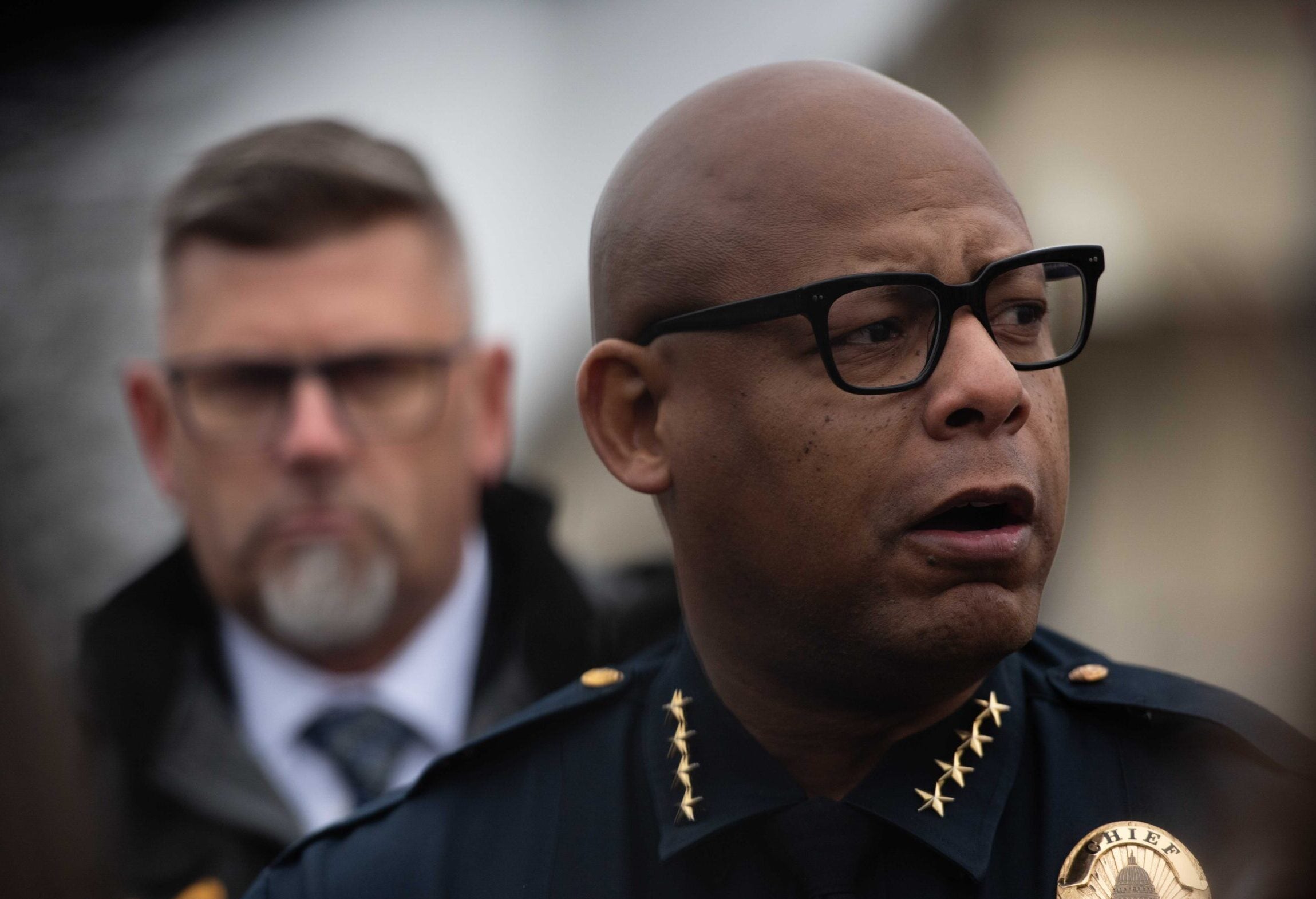For the first time, police shootings in Wisconsin could be investigated similarly to airplane crashes. Legislation has been introduced to create a statewide use-of-force advisory board to review incidents where police kill or seriously injure people, or when an officer is killed or hurt on the job.
The review board would be the first in the nation and has been in the works for more than five years. Advocates say the review board would introduce a new level of scrutiny to police shootings. The proposal comes just two weeks after the Kenosha district attorney announced that there would be no criminal charges against the police officer who shot Jacob Blake seven times in the back last summer.
The proposal is one of eight police reform bills introduced this week by lawmakers designed to reform police use-of-force policies and investigations.
Stay informed on the latest news
Sign up for WPR’s email newsletter.
State Sen. Van Wangaard, R-Racine, a former police officer, sponsored the bill.
Wangaard said the investigations would be similar to how the National Transportation Safety Board investigates plane crashes. The statewide task force would use the same methods as the aviation industry.
“One of the things that we cannot do as legislators is legislate common sense,” Wangaard said. “Common sense is a big denominator here. And our training is what has to step in. And if you don’t have good training, it’s a problem.”
The board would be made up of representatives from police unions, a mental health professional, a defense attorney and a representative of the Wisconsin District Attorneys Association.
The board would include representatives from multiple statewide police unions, a police training director and a mental health professional. The board would have to issue a public report at the conclusion of its investigations with recommendations to prevent similar incidents in the future.
So far, Milwaukee Democratic Sen. Lena Taylor has signed on as a supporter, and Wangaard believes the bill will easily have bipartisan support.
“This is not a bipartisan issue,” he said. “This is a way for a non-judgmental group of experts to look at what happened. It can’t be used for civil or criminal litigation. It will just show the community we have a non-prejudice group looking at the process.”
Wangaard has been working on the legislation since 2015 with activist Michael Bell Sr. Sixteen years ago, Bell’s son, Michael Bell Jr., was shot in the head by a Kenosha police officer in front of his mom and sister.
In 2004, Michael Bell Jr. pulled up to his house in Kenosha, and an officer followed him after observing his driving. Dashcam footage shows the two men talked and then struggled — and the officer shooting Bell pointblank in the head.
The officer said Bell took his gun. Within 48 hours, Kenosha police ruled the shooting justified. Michael Bell Sr. hired his own investigators who discovered considerable inconsistencies with the police account. The family later received a $1.75 million wrongful death settlement.
Since then, Michael Bell Sr. has worked on transparency issues in policing. Bell worked with the Legislature to create a state law in 2014 requiring a third-party investigation following police shootings.
When he got the call yesterday that the use-of-force advisory board bill had been introduced, Bell said he was proud.
“It needed a shepherd to guide this to the end,” Bell said. “And nobody understands a father’s love for their child, and that’s what it took. It just took a father’s love for his child to do this. And of course I would never give up.”
The seven other policing bills that were introduced this week include a proposal to ban training on chokeholds and no-knock search warrants. And a bill to reduce state aid to municipalities that reduce funding for hiring, training and retaining officers by however much the municipalities cut. That amount would be redistributed as aid to municipalities that didn’t cut police funding.
Other proposals in the legislation include:
- Mandating police departments post use-of-force policies online.
- Requiring officers to report every use-of-force incident they’re involved in or observe and prohibiting disciplining an officer who reports policy violations.
- Requiring the state Justice Department to publish annual use-of-force reports.
- Expanding the Milwaukee and Madison police and fire commissions and requiring commissioners receive training on use-of-force policies.
League of Wisconsin Municipalities lobbyist Jerry Deschane said his group is still studying the package. As of right now, he said his group would likely support seven of the bills. But he said they could not support the plan to reduce municipal aid.
“Globally, we’re glad the Legislature is looking at this issue, we’re glad they’re looking at it in a wholistic, bipartisan issue. I think it’s important that leaders in the state take this issue seriously, and we start to move forward in ways that make sense,” Deschane said.
Editor’s note: The Associated Press contributed to this report.
Wisconsin Public Radio, © Copyright 2025, Board of Regents of the University of Wisconsin System and Wisconsin Educational Communications Board.





